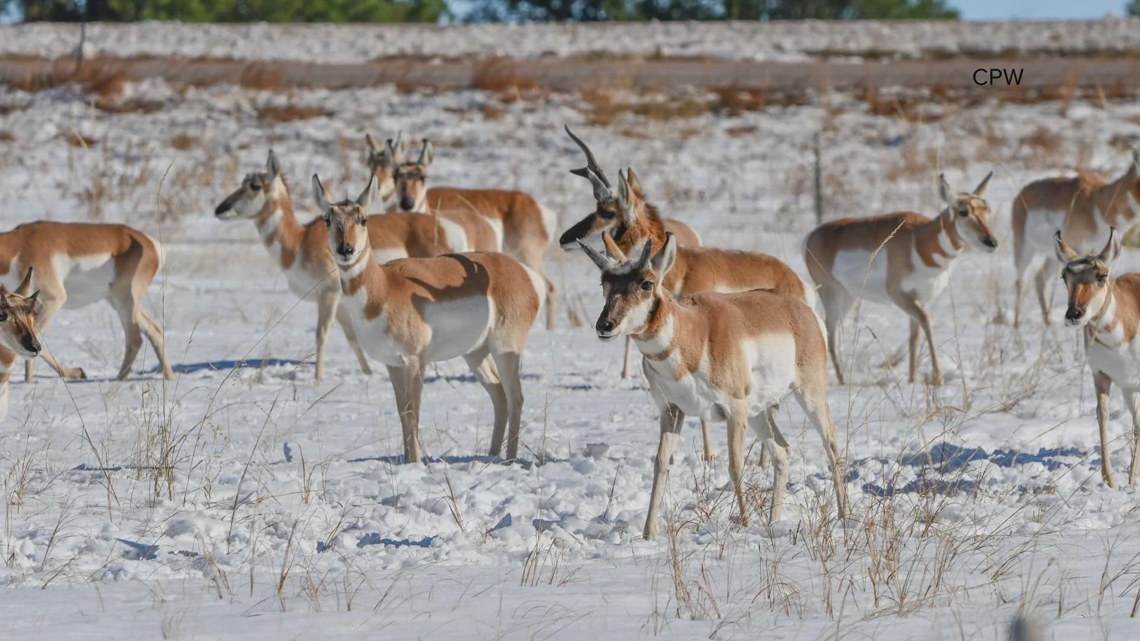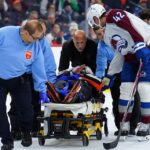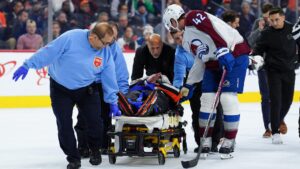Colorado Parks and Wildlife is urging drivers to slow down and keep an eye out for pronghorns sheltering on the roads until the snow melts.
BYERS, Colo. — Motorists have hit and killed more than 100 pronghorns since eastern Colorado got blasted by an early November snowstorm, Colorado Parks and Wildlife (CPW) said Tuesday.
CPW said its officers are monitoring herds to protect them and removing carcasses from the roads. The agency said it responded to 53 pronghorns that were hit and killed by vehicles Tuesday morning on U.S. Route 36 east of Byers. Another large group of pronghorns were killed on a road near Limon.
The account for CPW northeast region posted a graphic video and photo of the carnage to its social media, showing bodies of pronghorns littering the roads.
“Within about the last 18 hours or so, I can conservatively say, we had over 100 hit, and a lot of that is at night,” CPW area manager Tim Kroening said Tuesday. “Typically it’s a semi, or a large truck coming along, and the pronghorn aren’t able to escape and drivers aren’t expecting there’s going to be a group of 10 to 50 or more pronghorn sitting in the roadway.”
The pronghorn deaths have a lot to do with the snow, CPW said.
Pronghorns seek refuge from deep, crusty snow in fields by going onto the roads, according to CPW.
“So with that large snowstorm that we got, it makes it tough on our wildlife, especially pronghorn, on the Eastern Plains, so they’re not used to that much snow,” Kroening said. “So, in some places we still have 1 foot to 2 feet of snow and it makes it hard for them to travel, especially when the snow crusts over and gets really hard.”
When they’re on the icy roads, the animals can’t move quickly to escape oncoming traffic. CPW added that because pronghorns prefer to go under fences rather than jump over them, many are trapped on the roads because snow is 2 feet deep and there isn’t room for them to crawl under the bottom wires.
“What I’d say is, this whole thing is really sad,” Kroening said.
If you’re trying to get pronghorns off the roads, CPW said, the animals don’t respond to baiting to lure them away. That means until the snow melts, it’s up to people in the region to look out for pronghorns until the animals get off the roads.
CPW said they asked landowners to plow snow from their fields to give the pronghorns large spaces to shelter off the roads. The agency also urges motorists on the plains to slow down and watch for pronghorn sleeping or standing in the roads, especially at night.










More Stories
Yes, warming up your car before driving in cold weather can damage the engine over time
Could Russia’s loosened nuclear doctrine lead to a test detonation?
Fact check: Is the US government spending millions on transgender monkeys?